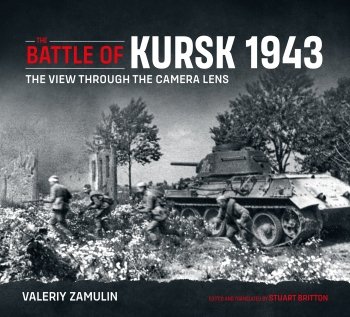-
Załączniki bezpieczeństwa
Załczniki do produktuZałączniki dotyczące bezpieczeństwa produktu zawierają informacje o opakowaniu produktu i mogą dostarczać kluczowych informacji dotyczących bezpieczeństwa konkretnego produktu
-
Informacje o producencie
Informacje o producencieInformacje dotyczące produktu obejmują adres i powiązane dane producenta produktu.HELION
-
Osoba odpowiedzialna w UE
Osoba odpowiedzialna w UEPodmiot gospodarczy z siedzibą w UE zapewniający zgodność produktu z wymaganymi przepisami.
The Battle of Kursk, despite the seven decades that have passed since the event, continues to attract great attention even today. The combat operations, which unfolded in the summer of 1943 in the center of the Eastern Front, by their scale, the forces drawn into them, and their military-political results, were a pivotal stage not only in the struggle of the Soviet people with the Nazi aggressors, but also in the Second World War as a whole. However, since the war, despite the enormous attention given to the fighting near Kursk, not a single book has been published, in which the photographs of Soviet war correspondents, taken directly on the battlefield, have been gathered, organized and presented for a broad audience of readers. This new photo study is unique - it consists of more than 500 photographs which capture images of the fighting, accompanied by expert commentary on them. It contains a collection of the best and at the same time little-known work of the leading Soviet war correspondents that covered the Battle of Kursk: V. Kinelovsky, P. Troshkin, F. Kislov, G. San’ko, E. Kopyt, I. Ozersky, O. Knorring and other outstanding photo journalists. The book also contains the work of a participant in those events, Lieutenant Colonel P. Gapochki, who was an adjutant to Lieutenant General N.S. Khrushchev, a member of the Voronezh Front’s Military Council. Through his duties, Gapochki managed to leave behind his personal impressions of the important and very difficult work of the top command echelon of an operating army, which to this point have been classified. Although Soviet photographs comprise the bulk of the book, it also includes a significant number of captured German photographs, as well as aerial reconnaissance photographs taken in the spring and summer of 1943. This gives a more objective image of those historical events. All of this invaluable material was found in the archives of eight Russian and foreign archives and museums, as well as in the family collections of veterans. This photo album will be of great interest to many readers with its rare and unique photographs, which have captured instances of the immortal heroism and valour, demonstrated by the soldiers and officers of the Red Army in one of the most significant battles of the preceding century. In the same way Valeriy Zamulin's book Demolishing the Myth broke new ground for an English-speaking audience, this photograph album should also open readers' eyes to a swathe of new Kursk material, much of it hitherto inaccessible.








